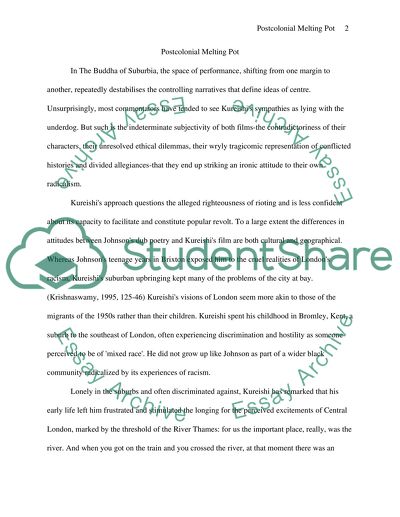Cite this document
(“Postcolonial Melting Pot Book Report/Review Example | Topics and Well Written Essays - 2000 words”, n.d.)
Postcolonial Melting Pot Book Report/Review Example | Topics and Well Written Essays - 2000 words. Retrieved from https://studentshare.org/literature/1531056-postcolonial-melting-pot
Postcolonial Melting Pot Book Report/Review Example | Topics and Well Written Essays - 2000 words. Retrieved from https://studentshare.org/literature/1531056-postcolonial-melting-pot
(Postcolonial Melting Pot Book Report/Review Example | Topics and Well Written Essays - 2000 Words)
Postcolonial Melting Pot Book Report/Review Example | Topics and Well Written Essays - 2000 Words. https://studentshare.org/literature/1531056-postcolonial-melting-pot.
Postcolonial Melting Pot Book Report/Review Example | Topics and Well Written Essays - 2000 Words. https://studentshare.org/literature/1531056-postcolonial-melting-pot.
“Postcolonial Melting Pot Book Report/Review Example | Topics and Well Written Essays - 2000 Words”, n.d. https://studentshare.org/literature/1531056-postcolonial-melting-pot.


